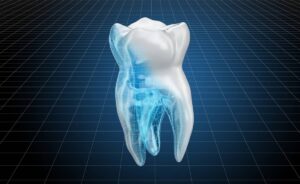Introduction
If you’re one of the millions of Americans suffering from gum disease, you may be wondering if it’s possible to get dental implants. The short answer is yes! In fact, there are times when dental implants are appropriate for patients with periodontitis, but it is important to make sure that your implant dentist is qualified and experienced. Dental implants can do great things for your smile—and your overall oral health—but there are certain conditions that must be met before undergoing any type of treatment.

It’s all about being in the right stage of gum disease.
Periodontitis is a serious condition that can lead to tooth loss, bone loss, and even heart disease. With treatments like gum surgery and regular cleaning, you can make sure your teeth are healthy and strong.
After getting the right diagnosis from your dentist, they may recommend over-the-counter or prescription medications that will help your periodontal disease progress slower. This is ideal because it will give you time to heal after surgery before you have to worry about getting more work done at the same time.
Patients who have had periodontal surgery may still receive dental implants.
Dental implants are a common solution for tooth replacement. They are artificial roots that are placed into the jawbone to help support a new crown, bridge or denture. The implant acts as an anchor for these restorations and keeps them in place securely.
It’s possible to have dental implants even if you have periodontitis, but there are important considerations that must be addressed by your dentist before receiving them. First of all, it’s necessary for patients with chronic gum disease to undergo surgery first so that the infection can be treated and resolved before performing dental implant placement. In addition, it may take longer than usual for the implants to heal after surgery because of increased inflammation in the mouth caused by periodontal disease.
Your gums are strong enough for implants when you’re in the maintenance phase.
Your gums are strong enough for implants when you’re in the maintenance phase. We’ve already talked about this, but it’s worth repeating: dental implants can be a good option if your periodontitis is under control and you’ve had periodontal surgery. This means that you should have had some sort of treatment to repair or regenerate your gum tissue, which will help keep the disease from getting worse.
If you don’t have any signs of advanced periodontitis like severe bone loss and mobility, you might not need to do anything before getting implants placed. However, if there are signs that your gums aren’t healing properly after a procedure like scaling and root planing (SRP), then it’s probably best not to get an implant right away because further treatment may be needed first.
Dental implants are a great way to replace missing teeth and improve your smile. If you’re suffering from periodontitis, dental implants can help you regain the strong healthy teeth that you have lost due to this condition. Dental implants are safe and effective, so they can restore your smile without any complications.
There are times when dental implants are appropriate for patients with periodontitis, but it is important to make sure you have the right conditions and that your implant dentist near me is qualified and experienced.
First of all, you will need to be in the right stage of gum disease to get dental implants with periodontitis. If you are at the very early stages of gum disease (meaning your pockets are only 4mm), then it may be possible for you to have dental implants. However, as soon as your pockets reach 6mm or more, it becomes extremely difficult—and sometimes impossible—to have dental implants without causing pain and discomfort. This is because the infection and inflammation in the area can cause irritation around them which can lead to further problems such as tissue breakdown around them which makes them less stable!
Get dental implants safely
If you are considering dental implants, it is important to find a dentist who has experience with the procedure. The best way to determine if the dentist has had experience is by asking about his or her training and credentials. Your implant dentist should have completed an accredited residency program or at least be certified by an accredited dental implant course by the Canadian Board of Periodontology and/or the American Academy of Periodontology. You can also ask how long s/he has been performing these procedures on patients, check for any reviews online, and speak with your insurance company about whether there is an in-network provider within driving distance.
If you have gum disease or any other health issues that could affect your ability to heal properly after getting implants, it will be important for them not only to know but also to take into consideration during treatment planning. There are many different approaches that can be taken when treating periodontitis (the most common form), including surgery alone through scaling/root planing (SRP) or antibiotics as well as surgical removal of excess bone followed by placement of grafted material underneath existing roots before reattaching them back up into sockets. however, most implant dentists will try their best not only to minimize discomfort but also to reduce risks associated with certain types of surgeries such as bleeding.
What happens during a dental implant consultation with Dr.Dowlatshahi
You may be wondering how to prepare for a dental implant consultation. That’s a good question, and we have some answers!
You’ll arrive at our office for your appointment and be greeted by one of our friendly staff members. You can expect to fill out some paperwork before entering the exam room, where Dr. Dowlatshahi will perform a thorough oral exam that includes X-rays and photographs. He will discuss your treatment options with you, including what kinds of treatment, and materials are available, the costs and what kind would work best in your situation.
Conclusion
We hope that this article has helped to clear up any questions or misconceptions about dental implants. Dental implants are a great way to improve your smile. If you’re considering getting dental implants, make sure that you check out our website for more information on how we can help!


